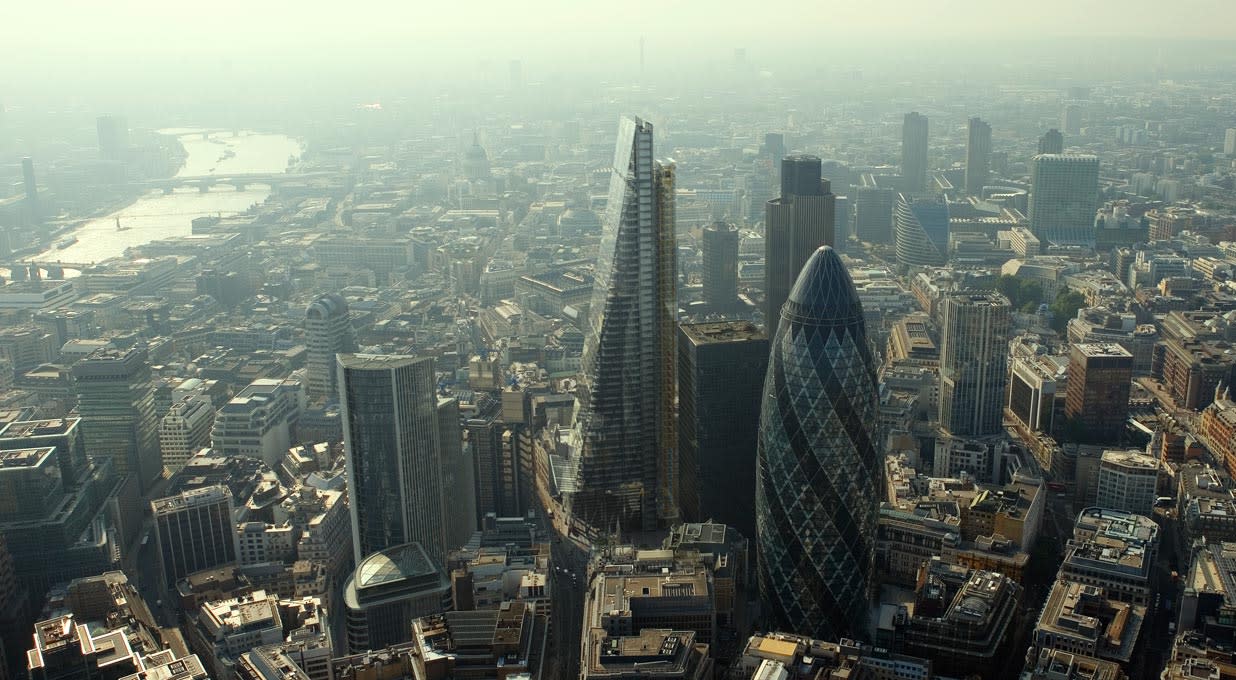British Land’s full-year net rental income fell 1.3% to £440mn, driven by disposals and some asset refurbishments. Higher fee income and lower costs helped underlying profit rise 2% to £268mn.
Estimated rental value (ERV) rose 5.9% (potential property income under ideal conditions), exceeding guidance in all sectors. Total occupancy across the portfolio was 97%.
Rising interest rates early in the year affected the valuation of the group's portfolio, falling 2.6% to £8.7bn. Values were broadly stable over the second half.
British Land's loan-to-value rose to 37.3% from 36.0%, reflecting lower valuations and higher capital expenditure.
In the coming year, ERV growth is expected to be between 3-5% across all markets.
The board has proposed a final dividend of 10.64p per share, taking the total for the year to 22.80p (up 1%).
The shares were broadly flat in early trading.
Our view
Corporate landlord British Land is starting to see conditions improve. Rent growth is helping to prop up the top line while the more stable rate environment means property values are finally showing some stability.
London "campus" portfolios have been an area of focus recently. These combine topflight office facilities, with retail, leisure and hospitality facilities as well as carefully designed public spaces. Occupancy for campuses is back in the 90% bracket and significant renewals from the likes of Meta show demand for high quality space remains. We do remain mindful of how this sector will perform though - the exact nature of working patterns is yet to fully shake out.
The science and technology sector is key to the campus strategy. It’s a higher growth part of the market and makes up about 20% of the current footprint. That could rise to around 50% by the end of the decade. We like the targeted approach, and by partnering up like the recently announced joint venture at 1 Triton Square in Regent’s Place, costs can be spread.
Urban logistics sites are another source for future growth, the London market is heavily undersupplied, and the growth of e-commerce and same day delivery needs should be a longer-term tailwind to demand.
All these areas are exciting when it comes to the future, but a fair whack of the business still relies on retail. Retail Parks remain very resilient with occupancy at 99%, as customers look for sites that offer decent affordability and omnichannel compatibility. We think the preference for Retail Parks over high streets will be here to stay.
Development is also key, but higher interest rates mean it’s not been as profitable a hunting ground of late. British Land is being picky about which projects to take on, but there’s been positive talk that the environment is starting to improve.
The balance sheet is in reasonable condition too. That should give the group the cash it needs to invest in its pipeline of new developments and helps support the group's ability to pay dividends. But with the policy set to pay 80% of profits (rather than an absolute amount), the board's built-in room for flexibility if conditions deteriorate. Of course, no returns are guaranteed.
The group has a collection of strong assets and a pipeline that looks promising, in areas the group has expertise and pricing power. We've been pleasantly surprised with how well costs have been managed but can't rule out further pressures over the coming year.
British Land key facts
All ratios are sourced from Refinitiv, based on previous day’s closing values. Please remember yields are variable and not a reliable indicator of future income. Keep in mind key figures shouldn’t be looked at on their own – it’s important to understand the big picture.
This article is not advice or a recommendation to buy, sell or hold any investment.No view is given on the present or future value or price of any investment, and investors should form their own view on any proposed investment.This article has not been prepared in accordance with legal requirements designed to promote the independence of investment research and is considered a marketing communication.Non - independent research is not subject to FCA rules prohibiting dealing ahead of research, however HL has put controls in place(including dealing restrictions, physical and information barriers) to manage potential conflicts of interest presented by such dealing.Please see our full non - independent research disclosure for more information.


